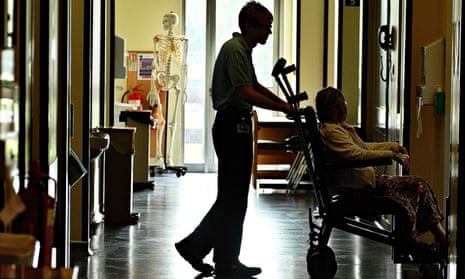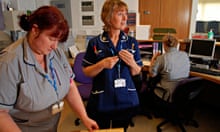Circle Holdings became the only private company to run an NHS hospital when it took over Hinchingbrooke NHS trust in early 2012.
Circle was founded as a part-employee owned business in 2004 by Massoud Fouladi, an NHS surgeon, and Ali Parsa, an entrepreneur and former investment banker.
The company has what it calls a credo, set out by its founders, which says: “We are, above all, the agents of our patients. We aim to exceed their expectations every time so that we earn their trust and loyalty. We strive to continuously improve the quality and the value of the care we give our patients.”
Circle started off running daycare surgical centres before winning the contract to manage Hinchingbrooke, which was in dire need of improvement. In August 2012, Parsa, then Circle’s chief executive, basked in improved performance figures and said he had let nurses and doctors “dream the impossible”.
But Circle’s image was damaged last September when the Care Quality Commission inspected Hinchingbrooke and found patients being neglected, poor hygiene and staffing problems. Circle said on Friday it disagreed with the CQC’s findings.
The company listed on the stock exchange’s Alternative Investment Market in June 2012 with the backing of the hedge funds Lansdowne Partners, which owns 25%, and Odey Asset Management, with 12%. Circle’s shares fell 27% to 48.7p after it disclosed its plan to pull out of Hinchingbrooke.
Circle’s key institutional investors have links to the Conservative party. Lansdowne’s founder, Paul Ruddock, was knighted in 2012 and is a member of David Cameron’s leader’s group, a collection of top donors who pay £50,000 a year to join the prime minister at dinners and other events. Odey’s founder, Crispin Odey, has also been a member of the leader’s group but has recently lent support to Ukip’s Nigel Farage.
Until last month, Circle Holdings owned 50.1% of Circle Health, which runs Hinchingbrooke, with the remainder held by Circle Partnership, owned by Circle Health’s doctors and employees. It has reorganised itself so that employees now own 25% of Circle Holdings, which wrote off Circle Health’s debt.
Parsa stood down as chief executive in late 2012 but stayed on the board as a non-executive director. He has now left the board but still owned 2.2% of the company in May 2013. Since leaving Circle he has launched Babylon, a subscription app that lets people consult doctors online.
Parsa was replaced by Steve Melton, a former operations manager at Asda and Argos, who joined Circle as its operations chief in 2008.
In 2013, the most recent year for which figures are disclosed, Melton earned a salary of £300,000 plus £48,000 in pension contributions and other benefits. Fouladi was paid £181,000.
In 2012, his final year as chief executive, Parsa was paid £1.1m. As well as £415,000 salary he received £564,000 linked to the end of his contract, comprising £400,000 salary, a £71,000 termination payment and £85,000 towards his pension.
The company reorganised itself last month.
Fouladi remains on the board as chief medical officer and Lord Hutton of Furness, the former Labour cabinet minister, is a non-executive director.
In August, Circle posted an operating loss before exceptional items of £7.2m for the first six months of this year. It has never made a profit but the company has said its strategy is focused on growing and investing.
Alongside its half-year results, Circle claimed that Hinchingbrooke was achieving “outstanding quality of care” but it added that funding was tight and that it was in talks with the NHS about the contract.
Dr Mark Porter, the British Medical Association council chair, said the decision to hand over the running of the hospital to a private provider was misguided. “What has happened in Hinchingbrooke shows that the responsibility of running a critical public service can never be handed over … This example also shows that not even private providers are immune to the extreme financial pressures on NHS services, caused by a shortage of government funding,” he added.







